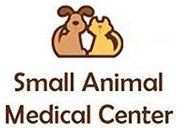VETERINARY CARE FAQs
Keeping your furry friend happy and healthy is our top priority. Professional veterinary care is crucial in keeping them healthy. At Small Medical Center, we provide a full breadth of veterinary care services such as pet dentistry, spaying/neutering, annual wellness exams, and vaccinations. Below are some of the most common questions that we get regarding our services and animal care.
Contact our veterinarian clinic today!
Small Animal Medical Center proudly provides veterinary care to the Brownwood, TX area. Your furry friend is another member of the family and their health is of the utmost importance. Our staff works diligently to provide your pet with the care they deserve and that you expect. Whether it is an annual wellness exam, pet dentistry services, vaccinations, or anything else, we will always do our best. Contact us today to schedule your furry friend's veterinary appointment!
